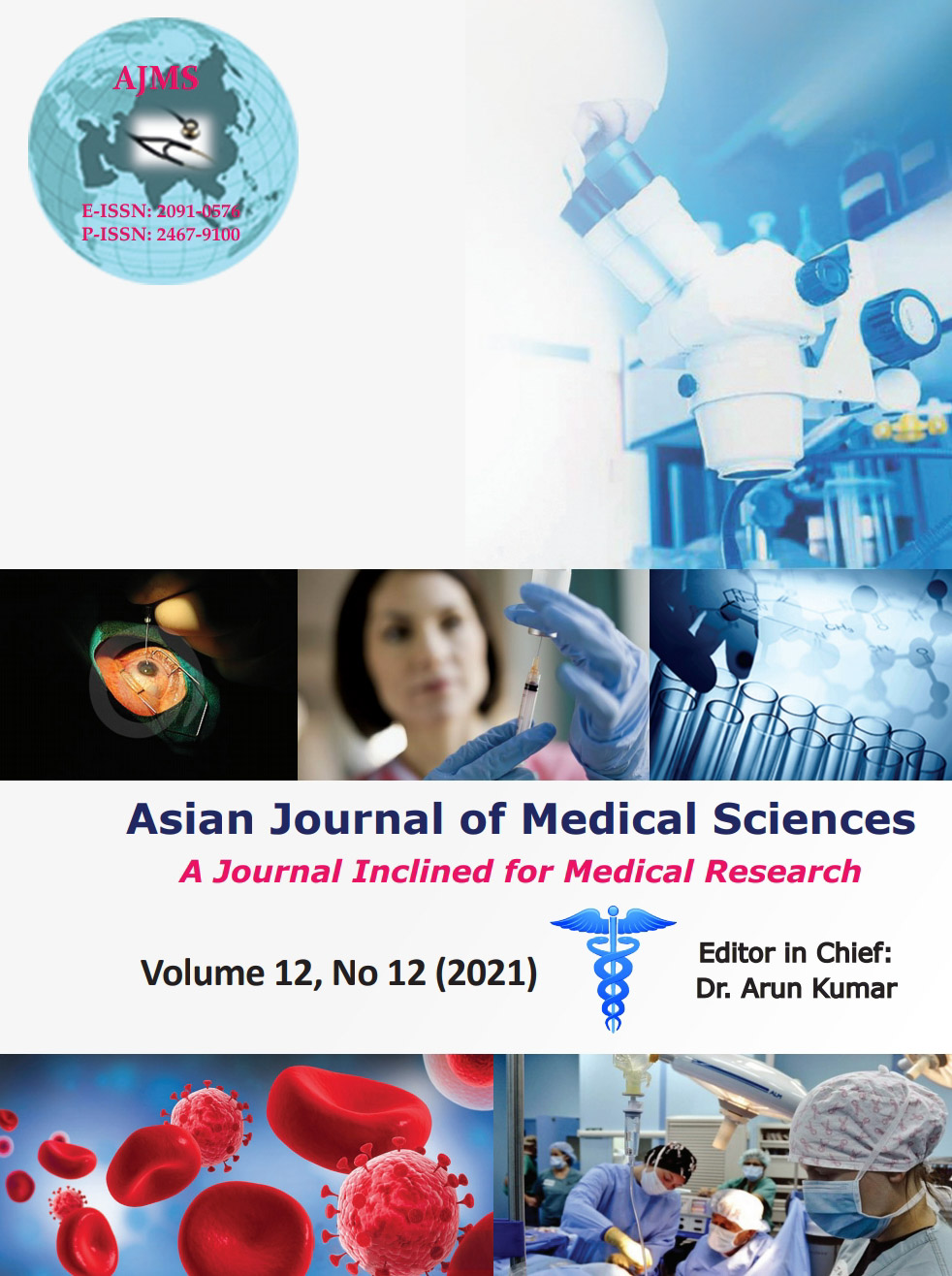The effect of remdesivir on selective biomarkers and its value in predicting the clinical outcome in patients with COVID-19
Keywords:
COVID-19 infection, C-reactive protein, D-Dimer, Ferritin, Inflammatory markers, Lactate dehydrogenase, RemdesivirAbstract
Background: To the best of our knowledge, there have been no studies to evaluate the effect of remdesivir on inflammatory markers.
Aims and Objectives: To study the effect of Remdesivir on Selective biomarkers namely C-Reactive Protein (CRP), Lactate Dehydrogenase (LDH), Serum Ferritin and D-dimer and their value in predicting the clinical outcome in patients with COVID -19 infection.
Materials and Methods: This is a retrospective observational study including 102 laboratory-confirmed COVID-19 patients of moderate and severe category who were subjected to complete blood count, liver function test, BUN, creatinine, C-reactive protein, lactate dehydrogenase, D-dimer, serum ferritin, ECG, and chest X-ray. The association was analyzed using independent sample t-test or Mann–Whitney U-test. Patients were divided into two groups. Both received corticosteroids and anticoagulants. Group A also received remdesivir.
Results: Of the 102 patients, 90.2% of the patients in the non-remdesivir group and 94.1% in the remdesivir group were discharged. The mortality rate was 9.8% in the non-remdesivir group versus 5.9% in the remdesivir group (P=0.71). There was no statistically significant difference in the decrease of the inflammatory markers overtime in both the groups, irrespective of whether they received remdesivir or not.
Conclusion: High values of the inflammatory markers were seen at the time of admission. A 5 days course of remdesivir failed to demonstrate a statistically significant difference in the decrease in the levels of the inflammatory markers. However, we have observed a possible clinical benefit of remdesivir among patients with moderate and severe COVID-19 disease, as there was a trend toward better clinical outcomes. Further studies are needed to evaluate this therapeutic strategy.
Downloads
Downloads
Published
How to Cite
Issue
Section
License
Copyright (c) 2021 Asian Journal of Medical Sciences

This work is licensed under a Creative Commons Attribution-NonCommercial 4.0 International License.
Authors who publish with this journal agree to the following terms:
- The journal holds copyright and publishes the work under a Creative Commons CC-BY-NC license that permits use, distribution and reprduction in any medium, provided the original work is properly cited and is not used for commercial purposes. The journal should be recognised as the original publisher of this work.
- Authors are able to enter into separate, additional contractual arrangements for the non-exclusive distribution of the journal's published version of the work (e.g., post it to an institutional repository or publish it in a book), with an acknowledgement of its initial publication in this journal.
- Authors are permitted and encouraged to post their work online (e.g., in institutional repositories or on their website) prior to and during the submission process, as it can lead to productive exchanges, as well as earlier and greater citation of published work (See The Effect of Open Access).




